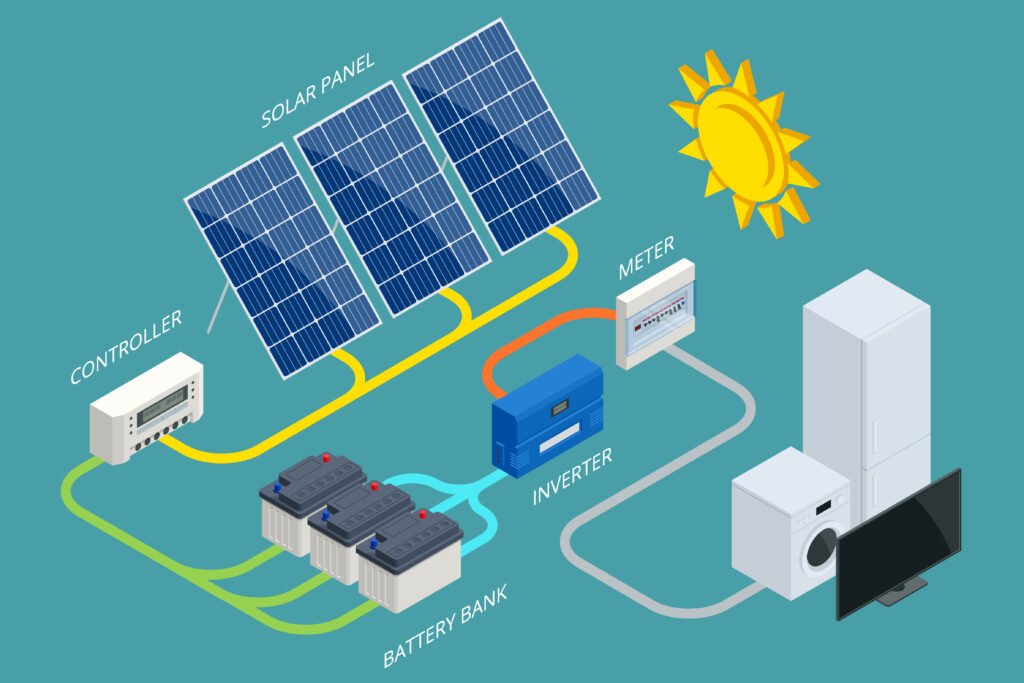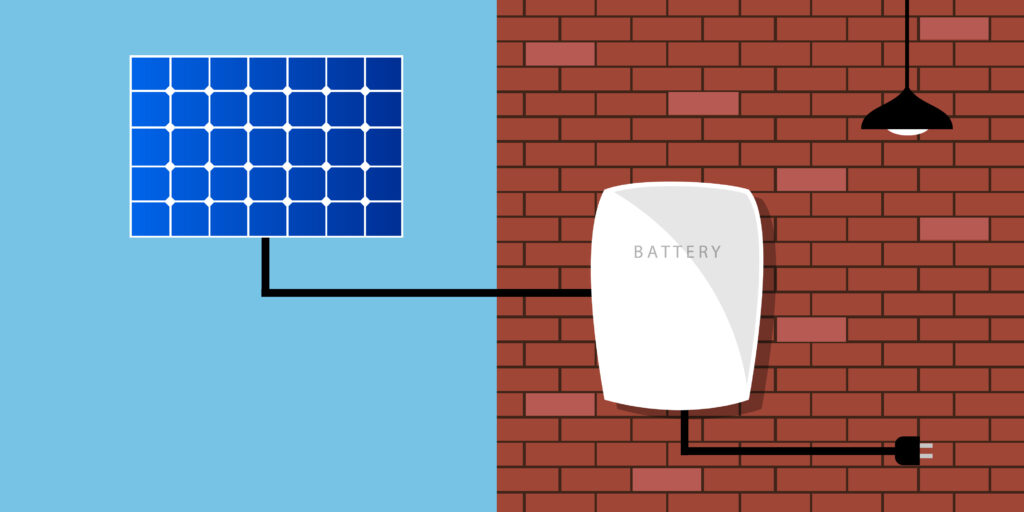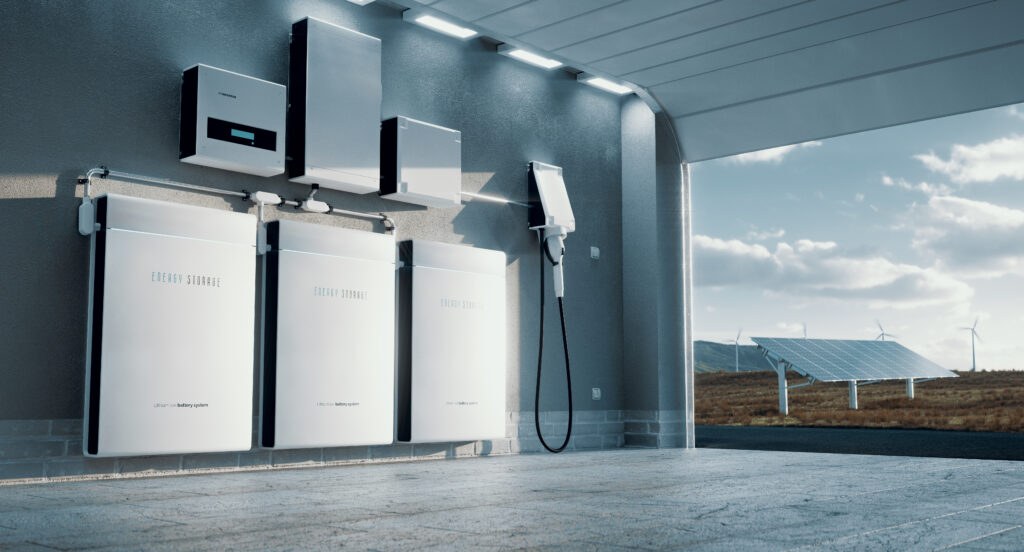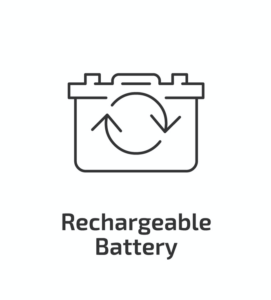When the power goes out, what do you do? What about when your freezer clicks off and your frozen food begins to thaw? Or when your security system doesn’t lock your front door any more? When your phone and extra charger both run out of battery?
So much of today’s world relies on electricity that suddenly having to go without it is almost impossible. But one enormous benefit to solar power is that it can be stored almost indefinitely. When the power goes out, your storage kicks in to take over your freezer, security system, and outlets.
How do batteries work?
Solar power may be stored in batteries. Generally, energy from light particles knocks electrons off your solar panels, which may pass through a wire and inverter into your home. But you can add batteries into this process to store the power. The battery is connected to your home’s electrical system, so you can use it to power anything that your electricity usually powers. It can heat water or even charge an electric car.

How should I choose which battery to buy?
Choosing which battery to use in your system is an important process. Solar batteries are moderately expensive and it’s important that you make a good choice. So here are some basics on batteries compatible with storing solar power to help get you started.
Solar Battery Specifications
- Capacity and power. Capacity is the maximum amount of power the battery would hold when 100% full and completely new. The average power usage of a household is about 30kWh, which most batteries won’t be able to handle. But the Tesla Powerwall and Discover 48V lithium batteries–as well as others–have enough power to keep the necessities going. Often, you may consider purchasing a bank of batteries rather than just one to help keep up with your power needs.
- Depth of discharge (DoD). Batteries tend to function best when not at 100% or 0% capacity. Depth of discharge is the ideal percent capacity of power in order to prolong the life of the battery. Batteries will function at a certain number of recharges depending on how full you charge it each time. (This is why the new iOS for the iPhone charges only to 80% until it’s almost morning.)
- Round-trip efficiency. This is the percent of the original power that comes into the battery that comes out once it’s passed through the inverter. Here, the highest percentage is best.
- Battery life/warranty. This is self-explanatory; battery life is how long the battery will continue to maintain a reasonable storage capacity, while warranty is how long the company will help you replace your battery for in case it malfunctions. Again, higher numbers here are better.
Below is a chart comparing six of the best solar batteries currently on the market. Wholesale Solar suggests that: the Discover is best overall for off-grid homes; the Crown CR430 is the best value for off-grid homes; the Crown 6CRV390 is best not only for off-grid vacation homes, but also for backup grid-tie systems; the Enphase battery is the best for energy resale; and the Crown 6CRV220 is best for RV/mobile systems. Here are the five, plus the Tesla Powerwall, and all of their specs for easy comparison. Prices may vary.
Comparative chart for various batteries
| Tesla Powerwall | Discover 48V lithium | Crown CR430 FLA | Crown 6CRV390 SLA | Enphase IQ battery | Crown 6CRV220 SLA | |
| Capacity | 13.5 kWh | 6.6 kWh | 3.15 kWh | 2.5 kWh | 1.2 kWh | unlisted |
| DoD | 100% | unlisted | 100% for 500 cycles | 75% for 550 cycles | 100% | unlisted |
| Efficiency | 90% | 95% | unlisted | unlisted | 96% | unlisted |
| Warranty | 10 years | 10 years | 3 years | 3 years | 10 years | unlisted |
| Price | $6,500 | $7,200 | $520 | $550 | $2,500 | $250 |
| $/kWh | $481 | $1,091 | $165 | $220 | $2,083 | n/a |
| Battery life | 15 years | >10 years | 500 cycles | 550 cycles | >10 years | 5-6 years |
Pricing and Warranty estimates are taken from an off-site resource and reflect national averages as of July 202o. They are not indicative of local markets. Call for up-to-the-minute pricing.
Hopefully these few tips will help you to choose the ideal battery for your home.
References



